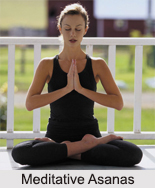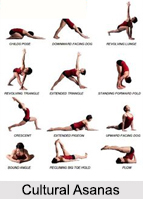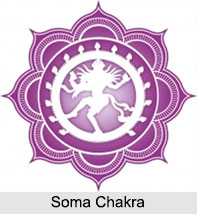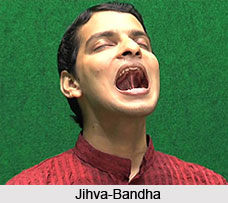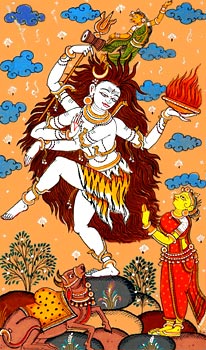 Mudras are regarded as the yoga of the fingers. Although mudras have been in use since ages yet the origin of Mudras is still enshrouded in mystery. The concept of Mudra is said to have existed in all religions as well as of all culture yet the origin of mudra is still unknown to the world. Even the paintings in the Ajanta caves and Ellora sculptures, dating back to 2nd and 1st century BC show innumerable mudras, yet till today no historical record has been found in regard to the origin of mudra.
Hinduism holds the most primitive recorded knowledge and analysis of the origin of Mudras. The earliest documentations of the origin of mudra are found in Mantra Shastra (the book of incantations), Upasana Shastra (the book of worship and prayers) and the Nritya Shastra (the book of classical dances). Even some verses of Bhagavad Gita unfold the fact that even its origin buried in deep obscurity Mudra time and time again has been used. The following remarkable verse from Bhagavad Gita mentions that Lord Krishna practiced Gyan Mudra when he bestowed the knowledge of Gita to Arjuna.
Mudras are regarded as the yoga of the fingers. Although mudras have been in use since ages yet the origin of Mudras is still enshrouded in mystery. The concept of Mudra is said to have existed in all religions as well as of all culture yet the origin of mudra is still unknown to the world. Even the paintings in the Ajanta caves and Ellora sculptures, dating back to 2nd and 1st century BC show innumerable mudras, yet till today no historical record has been found in regard to the origin of mudra.
Hinduism holds the most primitive recorded knowledge and analysis of the origin of Mudras. The earliest documentations of the origin of mudra are found in Mantra Shastra (the book of incantations), Upasana Shastra (the book of worship and prayers) and the Nritya Shastra (the book of classical dances). Even some verses of Bhagavad Gita unfold the fact that even its origin buried in deep obscurity Mudra time and time again has been used. The following remarkable verse from Bhagavad Gita mentions that Lord Krishna practiced Gyan Mudra when he bestowed the knowledge of Gita to Arjuna.
"Prapannapaarijaataaya totravetre paanaye,
gyaan mudraaya Krishnaaya geetaamritaa duhe Namah"
Not only in Hinduism in Jainism, Swami Mahavir Jain and in Sikhism, Guru Nanak are always shown in Gyan or Dhyan Mudra.
According to some of the ancient scriptures and religious tales Lord Shiva was the initiator of the mudras. His celestial dance Ananda Tandava` involves usage of some mudras. Although the origin of mudra is lying in deep obscure yet the effect of mudras cannot be denied.
This article is a stub. You can enrich by adding more information to it. Send your Write Up to content@indianetzone.com
